|
Are your actions leading you to joy? It seems like a selfish question to ask as we navigate the stress and frustration of international conflict and struggles in our own personal lives, but joy matters.
Since reading Ingrid Lee’s book Joyful, I have learned that joy is a state of mind that can be found even in times of grief or uncertainty. Choosing a colorful outfit, redecorating a physical space, hula-hooping, pouring coffee into your favorite mug, planning a celebration…the tiniest joyful gestures add up over time and can provide long-lasting health benefits. In her most recent Aesthetics of Joy newsletter, Lee wrote about revealed preferences – an economic theory stating that our behavior reveals our true preferences. It’s a topic that I resonate with today and back in 2018 when I wrote We Are What We Do in our Spare Time. From Lee: What preferences do your daily actions reveal? You might avoid the things you say you want to do out of fear, or inertia, or because you're unsure of how to start. But regardless, getting curious about these revealed preferences can help us close the gap between the life we dream of and the one we have. Another way to look at it: If an anthropologist analyzed a log of how you spend your time each day, what would they conclude is important to you? Does that match what you believe is most important? If not, you've just uncovered a golden opportunity to create more alignment with your values and your joy. Her inviting us to get curious is powerful advice. So often we judge ourselves for our behaviors or bad moods, but that doesn’t help us figure out what’s going on. Taking time to reflect on our preferences and values is the path to experiencing more joy. This past Sunday, in my sacred few hours of weekend child care (thank you grandparents!), I considered coming home to relax and finish a half watched movie or show, but instead I hit the trails. And I am so glad I did. Time spent immersed in the elements, sounds, scents, and beauty of nature is restorative. And in our tech-dominated lives, spending time in the outdoors gives our eyes a much-needed break from our constant focus on screens (another area of preference I am trying to be mindful of). Beyond the health benefits, today’s run helped me connect to joy - something we all have a preference toward, but sometimes lack the energy to seek. Fortunately, Ingrid Lee shares some great tools to find your joy in her Joyful Toolkit! Starting a Joy Journal is one activity I highly recommend, tracking the moments when you smile or laugh, when you’re tempted to say “Yay!” or “Wow,” or even just when you become aware of a subtle, pleasant feeling. Let me know if you give it a try! Forever and always I am grateful for the many small joys. Thanks for joining me on the journey! P.S. For more joy inspiration, check out this video with Matthew McConaughey (thanks for sharing sis!). Beyond him being a joy to watch, his insight on joy as a process is quite poignant.
0 Comments
Through life’s challenges, I am grateful for the many small moments of joy and beauty. Adventuring outdoors, observing nature, creating art, playing with children, exercising, listening to music, wearing bright clothes (dopamine dressing anyone?), reading, laughing, loving, eating….even on the days where we feel powerless amid the world’s troubles, joy is available to us all. And studies show that these small moments can reduce stress, strengthen our immune system, improve mood, and even help us live longer. Enjoy the little things – it’s a mantra on my gallery wall that I am grateful to be reminded of.
As I embark on a new year I want to focus on and continue to create and seek these small joys. I also want to focus on integrating life’s lessons. And sharing / modeling the process with my children. It is ok that I am an imperfect parent and wife. But it is not ok to live blind to my imperfections. There is power in acknowledging them aloud. As Brene Brown shared, “imperfections are not inadequacies; they are reminders that we’re all in this together.” Embracing our common humanity heals and is one of the most important elements of self-compassion. It is also not ok to live in mindless reactivity to my triggers. With awareness we have the power to grow, to change. Through repetition we have can rewire our brains to do most anything. But we have to put in the work – with intentionality and self-awareness. Luckily, it doesn’t take much. According to Dr. Rick Hanson, taking an extra 10-20-30 seconds to savor positive experiences can help hardwire our brains for happiness. Our thoughts impact our feelings and ultimately our behavior. Taking time to focus deeply on our aspirations and the values we want to embody plants small seeds and is an easy way we can bring more light into the world. Small joys and living a life of growth: those sure seem worthy of my focus and are no doubt a channel towards more love and hope for us all. This year my focus was Grace. I thought a lot about it early on and what it meant to me. And many times I have returned to that mantra/goal/vision/hope. Practicing and embodying acceptance, kindness, and self-compassion. Giving everyone - including myself - the benefit of the doubt. This is something I plan to carry on into this new year and forevermore. May all beings be joyful. May all beings grow. May all beings live in grace. May we all pursue a life of joy and growth with grace. I’ve been getting back into trail running and am feeling great. My first run last month was painful, but since then my muscle memory and self-efficacy has kicked in and I feel fortunate to have such amazing trails nearby. One of my favorites to fit in during my daughter’s nap is a short, challenging loop along the Bay Area Ridge Trail that gives me 35 minutes of switchbacks with views of the Carquinez Strait and Mount Diablo.
On my runs I enjoy listening to podcasts and on my playlist as of late have been Adam Grant’s WorkLife and ReThinking. Over the weekend I listened to his interview with Celeste Ng, whose books have been on my to-read list for quite some time. Besides motivating me to place a hold for her first novel at my local library, the podcast illuminated something that I have been reflecting on in my journey as a parent: the power of writing. As Adam shares in this episode, writing is a tool for thinking. "It’s not only a vehicle for communicating ideas, but a tool for crystallizing them". And I couldn’t agree more. Taking time to write and reflect is a powerful tool for personal growth. It can also be calming. When we take time to write, we can keep track of our progress to stay accountable. We can practice gratitude. We can recognize our habits and values, articulate our feelings, and identify who and what we are. As a parent, I am starting to believe that writing is essential. It gives us the emotional release we need while documenting our children's lives. It lets us take in the good while improving our self-awareness as we reflect on our snafus or patterns of reactivity. As Hunter Clarke-Fields shares in her fantastic book, “when we understand why we are so reactive—what old patterns and wounds are being triggered for us—we can begin to heal and choose a different way of being, rather than repeating dysfunctional family patterns”. So that is where I am at right now. Trail running, listening to podcasts, feeling inspired to write and reflect, and breaking generational patterns in parenting. And the important next step as Arthur Brooks shares is to take action with the information we glean through writing. Wish me luck! “Write clear and hard about what hurts” - Ernest Hemingway “When we pause, allow a gap and breathe deeply, we can experience instant refreshment. Suddenly, we slow down, look out, and there’s the world.” – Pema Chödrön
The end of my maternity leave is drawing near. Reflecting on this has evoked many emotions and thoughts on life transitions and how we spend our time. As anxiety about this reality crept in, I paused and settled into myself. For the first time in a while. I felt peace. I felt quiet. I felt expansiveness. It felt good. And all it took was a moment… This moment of pause could have been filled with other “things”. With my son at his day camp and my daughter asleep, I could have stuffed my feelings of overwhelm and anxiety with social media, TikToks and tweets. I could have picked up my book, cleaned, exercised, watched some comedy (more on that later). I could have called a friend. After taking that moment to pause and connect with myself, I chose to pick up my journal and watercolors. And those activities, consciously chosen, nourished me. My choice to quiet the noise and settle into my body reminded me of the power of self-reflection. I was reminded how when we pause and reflect on our values, we can more easily choose activities that give us that feeling of congruency and authenticity (which drive well-being). As a parent, maximizing my bits of kid-free time has been essential since choosing more nourishing activities helps me to become more present. I've written previously about presence and believe it’s the secret sauce in parenting, love and life. As of late, my daughter has been re-teaching me the power of presence. Almost five months earthside, she regularly seeks my gaze and radiates pure joy when our eyes lock. Its intoxicating. And it takes a whole lot of emotional energy to truly be there with her. To be a truly present parent your cup needs to be full. We need to practice self-care, consciously choosing activities that nourish us. Activities that recharge our emotional batteries. And practice self-compassion when we don’t. We need to ask for help and model to our children what self-care looks like. But man that’s a tall order….just like my long list of maternity leave goals. Am I the only new Mom who thinks I am can deliver a baby, nourish my family, rebuild my body, redecorate my home, and receive the Nobel Peace Prize in five months off work? And yet when I start work again my list of goals will still be there. Deliberations on how to best spend my time will persist. Yes, my time will become more scarce. But as I experienced in my recent moment of pause and presence, when we take time to go inward how we choose to spend our time may change. We may seek those activities that truly nourish us. That tick the self-care box. Activities that bring us more joy and refill our cup. And with that refilled cup, we can be present in where we’re at in life as it is. Right now, this moment.  Tomorrow I celebrate my 40th day postpartum. 40 days you ask? This benchmark was new to me too until I was recommended the book The First Forty Days: The Essential Art of Nourishing the New Mother (thank you Sara!). In it I learned that cultures around the world have designated the first six weeks as a critical period for a new mother’s recovery. The book shares insights centered on the need for retreat, warmth, support, rest, and ritual. Mostly it’s an eye-opening reminder of the need to support moms in focusing on their self-care and recovery. The various traditions of postpartum care shared in this wonderful book date back centuries and stretch across continents. Customs vary, but they share a universal belief that the exertion of childbirth, physical transformations postpartum (ahem – healing a plate-sized wound, hormone changes, creating milk, sleep deprivation) and mothering a newborn take a toll on mental and physical health. According to the book’s authors, when deliberate physical care and support surround a mother after birth, there is less risk for postpartum anxiety and depression. With one in five women being affected by maternal mental health problems, this is noteworthy. Depending on your heritage or culture you may be familiar with some postpartum traditions. The Chinese call this 40-day period Zuo yuezi, or “the Gateway,” as it is a threshold between one way of being and an entirely new existence. In many parts of Latin America, this forty-day period is known as la cuarentena - “quarantine” playing off the Spanish word for forty. In Ayurveda medicine, the saying goes “the first 40 days of life will impact the next 40 years of life”. In most traditions women focus on rest, eat certain foods, are cared for by their community, and bond with their newborn for a set amount of time—in most cultures 21 to 40 days. In my experience, American culture is lacking this postpartum wisdom. Even as a second time mother, most of the traditions described were new to me. Since reading this book my outlook on how to support myself and other women postpartum has changed and I am forever grateful. I didn’t incorporate all of the book’s recommendations, but found that I treated myself different compared to my first postpartum experience. I gave myself permission to stay at home and rest. To focus on healing and the preparation of nourishing foods. I accepted and asked for help. To celebrate my bog’s 8th anniversary, I drafted this post to share some of these lessons as I feel they can benefit us all. Thanks for being here with me! Eat nourishing foods. When it comes to postpartum nutrition, you might be surprised to learn that nutrient needs in new moms are higher than while she was pregnant. Especially for breastfeeding moms. Across the globe, traditional cultures put a heavy emphasis on foods rich in iron (to reestablish stores), protein and collagen (to repair tissues), fatty acids (to enrich breast milk), vitamins, antioxidants, and therapeutic herbs (to encouraging tissue healing and counter inflammation), and fluids. Though recipes vary, warming foods like rich bone broths and soups, herbal teas, and porridges were almost universal. Of the 60 recipes shared in The First Forty Days, bone broth-based soups, stews, and curries are especially emphasized because they are packed with protein, collagen, gelatin and glycine, which support wound healing. In addition, eggs, seafood, and organ meats are encouraged as they are rich in choline, vitamin D, iron, iodine, vitamin B12, zinc, and DHA, which support the healing mother and breastfed infant. Following this guidance, I joined the bone broth bandwagon and made a few recipes from the book, including a delicious chicken stew with greens and quinoa. This book helped rekindle my love of quinoa – the only whole grain that is a complete protein (containing all 9 essential amino acids). I’ve been batch cooking it and eating it for breakfast like oatmeal with dried fruits and nuts, in power bowls, and stir-fries. Green leafy vegetables, beans, lentils, nuts and soy are also great sources of protein and other important postpartum nutrients like omega-3s, vitamin A, and C. With the help of our CSA box and local farmer’s market I’ve been grateful to have had ready access to produce during this time. I try to add greens to every stew smoothie and scramble. Lentil soups have been on weekly rotation and inspired by this book I’ve made nut milks to enjoy in smoothies with my son (nuts being a fabulous source of unsaturated fat and trace minerals). Energy balls and hummus are other great power foods that are a breeze to make. Eating nourishing foods not only heals the body – it supports a healthy mind. And with postpartum depression impacting more than 17% of all mothers worldwide, nutrition should be part of the conversation. I’ve written before about the microbiome and how the gut-brain axis helps regulate mood. We also know that plant-based foods help fight inflammation, which is linked to depression. So help spread the word: nourishing new moms is essential. Social support is another key ingredient in supporting the mental health of new mothers, which brings me to my second lesson. Nurture relationships by accepting and asking for help. Beyond nourishing foods, surrounding a new mother with supportive hands is essential. In fact, research shows that relationship satisfaction reduces postpartum stress and improves health. One section of The First Forty Days titled “the gathering” encourages you to go inward to prepare and plan for an easeful postpartum experience. We often hear about a mother’s “nesting” instinct and see so much attention placed on decorating the baby’s room. But what about stocking your fridge, pantry, and freezer with nutrient-dense and healing dishes and drinks? Or gathering your community and support team to help nourish and care for you in the weeks after the baby’s arrival? Many postpartum traditions highlighted in the book describe the new mother surrounded by a circle of caring women. Today, however, many of us live far from our families and friends. But that shouldn’t prevent a new mother from gathering a set of helping hands. Asking for help can be hard at first. It was for me and still is, but after overextending myself in my first week I realized I needed to. And guess what? Your community will rally behind you because we humans are hard-wired to give back and help! Ideas for help could be delivering a meal once a week, purchasing pantry items from The First Forty Days book, helping care for your older children, some housework or helping pay for professional help. The book also invites you to fortify your relationships by having conversations in advance about your worries and potential needs postpartum. Sit down with your partner and reflect on how you’ll divvy up the baby caring responsibilities, how your finances may be affected with the baby’s arrival or how your sex lives and social lives will be impacted. Ask yourself - Who can I call if/when I get frustrated, scared or confused? Who can I turn to on good days and days when I’m feeling blue? With foresight and preparation, you, your partner, and community will be able to get through the challenges and life-altering experience of welcoming a new child with grace ------------ For me, The First Forty Days revealed that more attention should be placed on mom’s nourishment and overall care. As someone who has made “lactation cookies” for every one of my pregnant friends, I now plan to help stock their freezer with a few quarts of homemade soup or prepared casseroles jammed with healthy protein and veggies. That being said, I may keep up the lactation cookies tradition as they are delicious and come in handy meeting the increased caloric needs of breastfeeding moms… This book reminded me that food and community heal. So whether you’re in your early days postpartum, recovering from an illness, or just feeling blah in this post-pandemic world and you’re missing either of those ingredients, ask for help. You may feel vulnerable, but as my hero Brené Brown says, “vulnerability is not weakness; it's our greatest measure of courage”. And as we practice reaching out when we need help, we strengthen our relationships and may ultimately inspire the world to be more open and generous. A special thank you to all my family and friends who supported me these first 40 days. And especially Albert– thank you for your support and foresight. Thanks for making sure my water bottle and heart is always full.  Our many friends used to channel and role play our emotions at home. Our many friends used to channel and role play our emotions at home. The topic of emotional intelligence has come up frequently as I live and grow with a three-year-old. From managing tantrums (both his and mine), finding words to express our feelings, to navigating a bully at childcare, social-emotional skills are paramount as they help us identify and manage our emotions, express empathy, form meaningful relationships, and cope with stress. What I have learned is that emotional intelligence is a fundamental skill that starts in early childhood, develops and evolves over our lifetime, and is predictive of adult outcomes ranging from physical health, crime, and substance abuse by the time our kids are in kindergarten. Emotional intelligence is shaped by the experiences children have with those who care for them. A caregiver’s ability to respond to their needs, share love, acceptance, and warmth sends our kids a message about their own self-worth and ability to trust others. It also fosters resilience and gives them the confidence to persevere when they face challenges. As I grapple with the recent wave of mass shootings* and reflect on the startling increases in anxiety, depression and suicide in youth and adults, it is evident that fostering emotional intelligence in childhood is essential. Here are some ways we can help our kids (and each other) become more emotionally intelligent: 1. Get comfortable talking about feelings. As I shared in a recent post, research finds that just naming our emotions can have a calming effect. Noticing and naming our emotions diminishes their intensity and gives us the chance to take a step back and make choices about what to do with them. It also helps builds a child’s emotional vocabulary, which enables them to perceive their own feelings and those of others. There are everyday opportunities to talk to kids about emotions, but it all starts with us as caregivers. It isn’t always easy and the tendency to invalidate and suppress them is prevalent in our culture. Ask yourself, how did your parents (or caregivers) respond when you were upset? Did you feel like you could talk to them when you were angry, or you felt misunderstood? The chances are, if we struggle to talk about our feelings as adults it’s likely because we were never provided the space to do so as children. At our home, we use a feelings chart to acknowledge and name our emotions. When I find myself frustrated at my son, I try to articulate what I am feeling and why, which in practice helps me calm down while role modeling healthy emotional regulation. We also use stuffed animals and toys to work through our emotions. When reading to our kids, we can also talk about how characters feel and what happened to cause their feelings. 2. Listen empathetically and acknowledge feelings When a child is upset it can be tempting to be dismissive, telling them that it will be alright. In reality, this is sending them a message that that the way they're feeling is wrong. A better approach is to acknowledge their feelings and show empathy—even if we don’t understand why they're so upset. Children (and us adults) need to feel understood. Take a deep breath, relax, and focus on them. They’ll notice if you’re impatient or frustrated and just going through the motions. Try sharing simple observations. Say, “I noticed that you frowned when I mentioned going to the party” and then wait for a response. Or “You look so sad. Let’s see if we can make you feel better.” We can also make an effort to help kids challenge or reframe unhelpful negative self-talk as it appears. When a child says, "he/she doesn't want to be my friend" or “I can’t do math”, we can acknowledge the feeling (not the words), help them reframe it with more positive self-talk, and shift them into a growth mindset. 3. Teach and role model healthy coping skills We’ve all experienced it. Those days where we are hungry or under slept we may act more impulsively or have a shorter fuse. When we are at our best, it’s easier to stay in control of our emotions. Good self-care and predictable routines help children feel secure and can boost resilience. All of us need regular meals and adequate sleep. In addition, we can all benefit from learning how to take a few deep breaths when we’re angry or anxious. Role modeling these important behaviors sets an example for our kids and will support healthy habits that they’ll carry throughout their lives. When experiencing tough emotions, we can ask them open ended questions or get clarity by using either or questions: "Did you feel more upset about THIS or THIS?" "Were you more angry OR worried?" We can encourage our kids to draw their feelings or write about them in a journal. Maybe they just need some fresh air! Time spent in nature has been shown to ease symptoms of stress and anxiety and help us feel happier and healthier. We also know that exercise boosts mood and is a good outlet for strong feelings; inspiring a love of movement is the greatest gift we can give our kids. 4. Practice problem-solving Part of building emotional intelligence involves learning how to solve problems. When problems arise, we can’t always rush in to solve them for our kids. If your kid gets in trouble at school, breaks something, ore hurt themselves or someone else we can ask them “What can we do to make sure this doesn't happen again?". Of course, kids need consequences, but for real independence and self-efficacy to flourish we need to encourage them to make good decisions. And it's essential since research reveals that that kids who lack problem-solving skills are at higher risk of depression and suicidality. Cultivating good emotional health paves a path for long-term health and well-being. It starts at home. And we should demand that our schools and caregivers investing in more social and emotional learning to help prepare our kids to live not just a thriving life, but also a non-violent life. *One final note about mass shooters. A database of every mass shooter dating back to 1966 found that that the majority experienced early childhood trauma and exposure to violence at a young age. Preventing childhood trauma may seem daunting, but we know from the research on Adverse Childhood Experiences (ACEs) that the presence of a reliable, sensitive, and nurturing adult is one of the strongest protective factor against childhood trauma. Just one caring adult can have a huge positive impact on a child’s well-being. In addition, practically every mass shooter had reached an identifiable crisis point in the weeks or months leading up to the shooting. As a society, we need to be more proactive. Most mass public shooters are suicidal, and their crises are often well known to others before the shooting occurs. Schools and workplaces should teach resilience and social emotional learning and implement policies and practices that decrease the stigma around mental illness. This could not only help prevent mass shootings, but will also help promote the social and emotional success of all Americans, which is suffering. ********* I am proud to work for an organization committed to supporting the health of its community. In my current role, I help businesses build a culture of health at work and promote resilience, trauma-informed care, and social and emotional learning in the school environment. My wish is for more workplaces, employees, schools, and teachers to advantage of our amazing resources. Please help spread the word! Thrive at Work - Thriving Schools – Ready, Set, Rise! - Alliance for a Healthier Generation - More tips for early childhood teachers and providers here. We all know the benefits of exercise. It helps controls weight, combats chronic disease, improves mood, strengthens our immune system, boosts brainpower, and promotes better sleep. It can also be fun and feels great! And when we exercise in nature it can evoke awe.
We also know we’re not getting enough of it. Even before the pandemic only 23% of Americans met Physical Activity Guidelines for both* aerobic and muscle-strengthening activity with 53% meeting the guidelines for aerobic activity. Let's pause a moment and take in the good. Close your eyes and think about the last time you got a little dose of movement and felt better. Hold on to that feeling and let that be your motivation to get you out the door. Even if it’s just a quick walk around your block to start. The beauty of exercise is that it’s for everyone. No matter your age, health, or physical abilities, there are so many ways we can stay active and find joy in the process. If your shoes have gathered dust during this pandemic, it’s all good. Especially during these times we need to be kind to ourselves and practice self-compassion. Start today. Hit up the trails, pump up your bike tires, tune into that yoga video. You’ll feel so much better I promise you. *In addition to getting at least 30 minutes of moderate-intensity exercise most days of the week we should also do resistance training to build up muscle strength twice a week. But some exercise, even if it is pretty minimal, is better than none. “There is no greater journey than the one that you must take to discover all of the mysteries that lie within you.” – Michelle Sandlin A recent trip to the mountains enabled me to forest bathe beneath the trees with my journal. I know the benefits of journaling well, but honestly had not put pen to paper in some time. Taking time to self-reflect enables us to connect with and process our thoughts, emotions and motivations, and helps discover the “Why?” behind them. It provides an opportunity to pause amidst the chaos, sort through our observations and experiences, create meaning and deepen self-awareness. In my small bout of reflection I uncovered a lot. I found peace with my recent decision to take on a new role at work and began to process some difficulties I’ve been experiencing parenting a two-year-old. I created a list of actions I could take, reflected on some key questions, on what was going well and felt a physical sense of relief when I closed my journal and capped my pen.
Writing down our experiences and feelings is a proven strategy for coping with anxiety and negative emotions. One meta-analysis found that expressive writing led to reduced blood pressure, improved immune system, fewer visits to the doctor and shorter stays in the hospital, improved mood, reduced symptoms of depression, improved memory, and more. The act of self-reflection is a powerful tool to add to our resilience bank account and is critical during this time of continued uncertainty, grief and anxiety amid the pandemic and political division in our country. Research also shows that self-reflection is an essential part of our learning process. For example, one study found that employees who spent 15 minutes at the end of the day reflecting about lessons learned performed 23% better after 10 days than those who did not. Ruminating on the negative, listing our complaints, unfulfilled desires, and regrets provides release, but may not be the most productive way to spend our time reflecting. We've got to reflect on the "Why?" behind what we do/did. What was going on for me when XX was happening? What went well? What did not go the way it was intended? What did I learn? What will I do differently next time? What do I need to let go of in order to move on? This process will lead to a plan of action and over time may uncover trends in your thinking and behavior. Building time into our day for self-reflection helps us learn from our experiences, notice our habits and focus on what is important in life. It also provides an opportunity to practice other resilience-boosting activities, like deep breathing, gratitude and self-compassion. As American philosopher and psychologist John Dewey shared “We do not learn from experience. We learn from reflecting on experience.” May we regularly take time to quiet our mind and take stock of where we are. May we devote time to focus on our breath and let our mind rest. May we slow down to go further. And may we be gentle with ourselves and each other along the way. Ralph Waldo Emerson once said, 'You become what you think about all day long.' Since our thoughts shape our reality, improving the quality of our life often starts with improving the quality of our thoughts. And that can be accomplished with reframing and reshaping the way we view ourselves and the world.
As of late, some of my thoughts have been in need of reframing. And it's amazing how quickly my experiences can change when I embark on the practice. I have written before about our hardwired negativity bias. As part of our evolutionary experience, remembering the negative contributed to our survival. But constant negative thinking (aka rumination) is damaging to our health. When we ruminate, we activate the stress response. And chronic activation of the stress response can suppress our immune system, increase our risk for heart disease and gastrointestinal complications, impair memory and cognition, and more. As I type we are all continuing to be affected by the COVID-19 pandemic. Half a million deaths worldwide, record breaking unemployment, and the grief we all feel around our unique losses. There is no way of sugarcoating it, times are tough. Amid these challenges we are being called upon to become resilient. Of the many practices that foster resilience, one is the ability to reframe and challenge our negative thoughts. When we are personally affected by life's difficulties, it can be hard to challenge our thoughts; we may find ourselves ruminating - and that is normal. Fortunately there are some ways we can overcome our negative thoughts. Here are a few tips: 1. Become aware of your thoughts An important step is in challenging our thoughts is to understand where they come from. More often than not, negative thoughts arise from our various cognitive distortions like polarized or black and white thinking, overgeneralization, catastrophizing, labeling, discounting the positive, etc. Becoming familiar with these common cognitive distortions enables us to challenge them and think more critically. We should also remember that thoughts are not facts and they are not permanent. They also don’t benefit from our judgment. Just notice the thought, let it be, and continue on. The more we practice this non-judgmental awareness, the easier it becomes and the more we can take our thoughts less seriously. 2. Come to your senses When caught up in the cycle of rumination, we tend to lose touch with what is actually happening in the present moment. Coming to our senses calms the mind and grounds us in the present moment. Something that helps me come to my senses is taking a moment to STOP: - Stop. Whatever you’re doing, just pause momentarily. - Take a breath. Re-connect with your breath. The breath is our anchor to the present moment. - Observe. Notice what is happening in your body. What do you see, feel, taste, small, hear? Notice any emotions you may be feeling and just name them. Research out of UCLA says that just naming our emotions can have a calming effect. - Proceed. Use this new awareness to inform how you proceed into your day. 3. Seek nature I recently wrote about the healing power of nature. An additional healing power of nature is its ability to reduce rumination and activity in a part of our brain that's linked with an increased risk for depression. Whether you simply head outside to sit on a bench under a tree or strap on your boots for a hike, spending time in nature enables us to detach from our monkey mind and experience awe, helping us realize how insignificant our thoughts and problems often are in the grand scheme of it all. 4. Take in the good Making a conscious effort to take in the good is a powerful way to challenge our negativity bias. Taking in the good can look like many things, such as practicing gratitude or recalling positive memories, perhaps a situation where we felt success, love, or joy. We can take in the good while engaging in activities that make us feel good, like listening to music, playing games, spending time with others, or creating art. Whatever good you take in, past or present, according to Dr. Rick Hanson, it’s important to take time (20-30 seconds) to really let these good experiences to sink in. 5. Set aside time for reflection and problem solving Negative thoughts don’t always arise due to cognitive distortions or a bad mood. Sometimes they are caused by real problems that we can address with problem solving. Set aside time for reflection and problem-solving, perhaps 15-20 minutes when you have some peace and privacy to consider what's bothering you and what you can do about it. Whether you are experiencing issues with your occupation, relationship, location, health, or education, there can be steps you can take today to make a positive change. 6. Practice self-compassion The truth is that all of us experience negative thinking to some degree. It’s a part of the human experience living with a complex brain. I wrote previously about the power of self-compassion and more research reveals its link to greater life satisfaction. Rather than wishing away our negative thoughts, let’s just become aware of them, at ease with them, and cultivate empathy knowing that others experience them too. This alone can help us feel less isolated. Reframing negative thoughts does not mean denying the difficulty of our current circumstances. There is transformative power in our suffering as it can push us to grow and improve our life along the way. As we deepen the awareness of our thoughts and emotions we engage our discomfort and build resilience, the ability to bounce back and adapt to life’s difficulties. May we all strive to reframe our negative thoughts and accept that this is a moment of suffering. May we accept that suffering is a part of life. May we offer ourselves the kindness and compassion that we need. In closing, I want to extend gratitude to my life partner for he is the one who reminded me of the power of reframing negative thought patterns this week. I am indebted to his perception, wisdom, and counsel. I’ve been drafting and deleting blog posts for the past two months. Wanting to bring light to the world during this unprecedented time and find meaning in my struggles with work and life while parenting an energetic two year old in quarantine.
As we navigate the continued uncertainty and fear around coronavirus, our country is on fire protesting against police brutality and discrimination. As Trevor Noah shared, while everyone is facing a battle against coronavirus, African Americans are facing the battle against racism and the coronavirus. As we continue to learn more about the coronavirus, we see that it too discriminates. It's clear that people with chronic health conditions are being hit harder. While many people experience mild illness, 89% of people with COVID-19 who were sick enough to be hospitalized had at least one chronic condition. About half had high blood pressure and obesity, and about a third had diabetes and heart disease according to data from the CDC. This data should be a wakeup call for us all. Wearing personal protective equipment and practicing social distancing are paramount in our efforts to avoid infection from COVID-19, but good health is what will keep us alive if and when we do contract the virus. Currently, 43% of American adults are obese, 6 in 10 have one chronic disease, and 4 in 10 have two or more. The roots of obesity and chronic illness stem from lifestyle, but it's not always about personal responsibility. Growing research reveals that the environments where we live, work, and play shape our health. In fact, our lifespan and risk for chronic disease can be predicted by our zip code. Though every community is experiencing harm in this pandemic, certain groups are suffering disproportionately, including people of color and those who were already struggling financially before the pandemic hit. African Americans suffer from the highest rates of obesity and chorionic disease compared to other groups in the United States, increasing their risk for complications when infected by COVID-19. Because of this African Americans account for 13% of our population, but at least 25% of our 100,000 COVID-19 deaths. The same disproportionate death rate prevails among African Americans being killed by police. As we search for treatments and a vaccine for the coronavirus, we should also be talking about health equity. According to the Robert Wood Johnson Foundation, “Health equity means that everyone has a fair and just opportunity to be as healthy as possible. This requires removing obstacles to health such as poverty, discrimination, and their consequences, including powerlessness and lack of access to good jobs with fair pay, quality education and housing, safe environments, and health care.” Coronavirus has exposed our nation's racial inequities. It has exposed that in our nation we are not all treated fairly --- from law enforcement, from a virus, and by eachother. When faced with such seemingly large forces like racism, discrimination, and health disparities it's easy to feel powerless. But as people riot and black Americans continue to die at disproportional rates from chronic illness, police brutality, and now COVID-19 I think we all can agree that its time for change. As Dr. Camara Jones, past president of the American Public Health Association, shared years ago, we need to address structural racism. Please watch her powerful allegory called The Gardener's Tale if you have not yet. Her Cliff of Good Health analogy is equally as powerful and worth of watching. Protecting our nation against this virus and into the future will require us to ask uncomfortable questions around our role in maintaining the structural barriers that lead to health inequity, and ponder upon ways that we can dismantle them. We should all examine our biases and consider where they may have originated, call out racist jokes or statements, and validate the experiences and feelings of people of color. We can apply an equity lens to our life and find out what our workplaces, schools, community, congregations, etc. are doing to create equity and become part of the change and join them. And when we can, we can all lead by example eating a healthy diet, staying physically active and finding ways to reduce stress -- all of which will reduce our vulnerability to COVID-19, enhance the quality of our life, and build a healthier generation to come. We are all in this together. |
AuthorHello and welcome! My name is Andrea Notch Mayzeles. I am a Certified Health Education Specialist, Mom, and Master of Public Health dedicated to the path of well-being. As a wellness professional I am committed to continued learning and am here to share research, recipes and musings on health, psychology, personal development, and parenting. I hope you enjoy! Categories
All
|






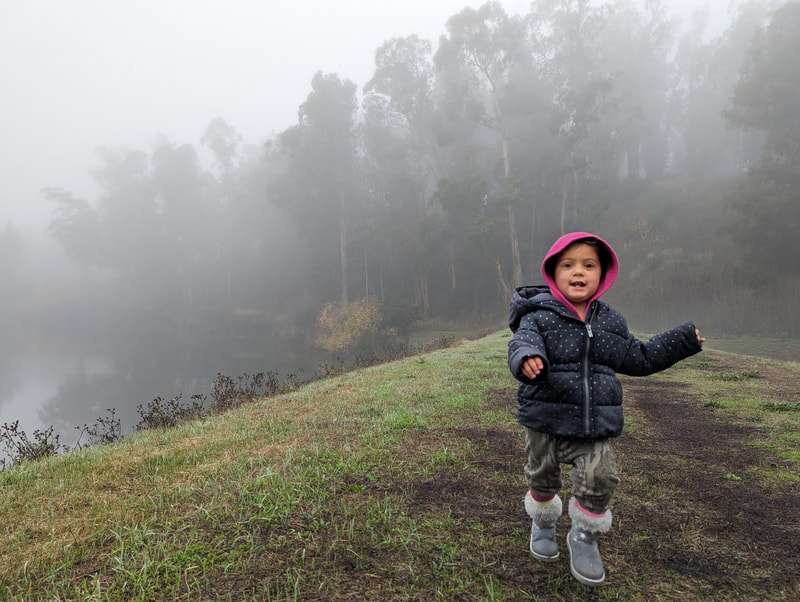
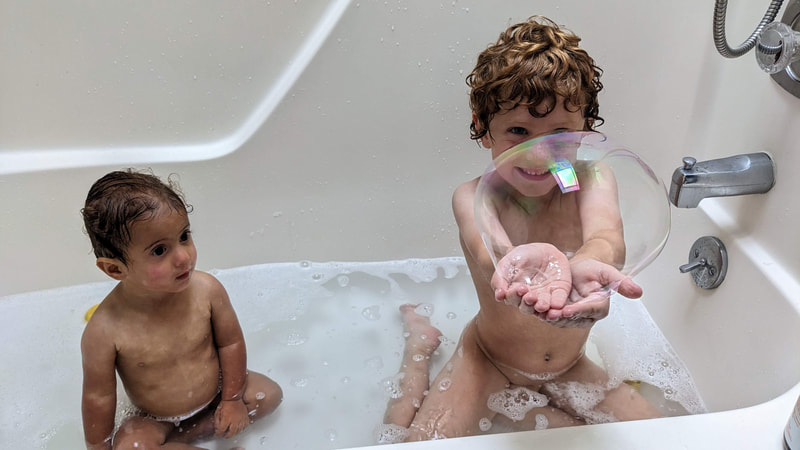
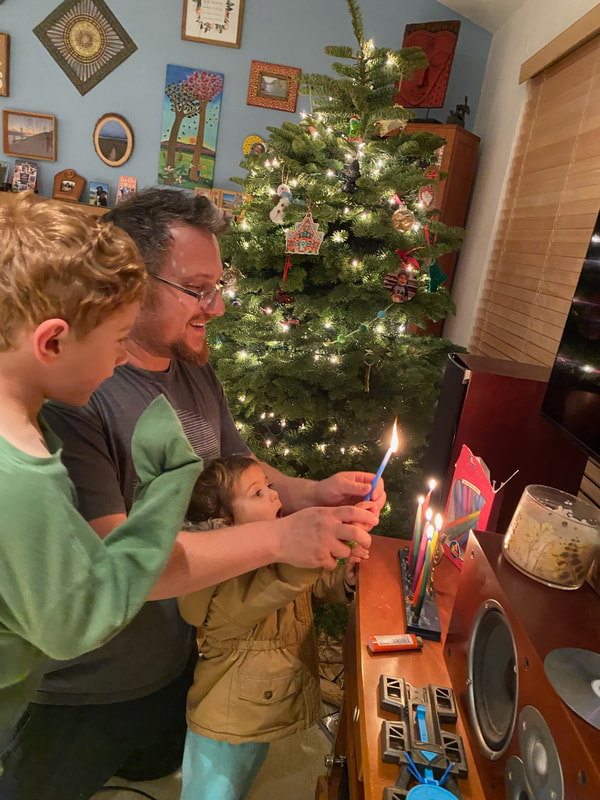
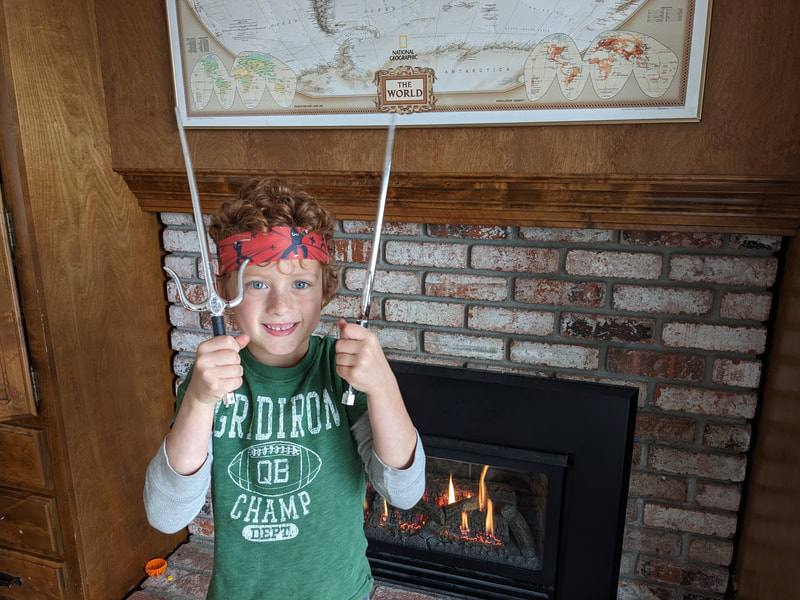
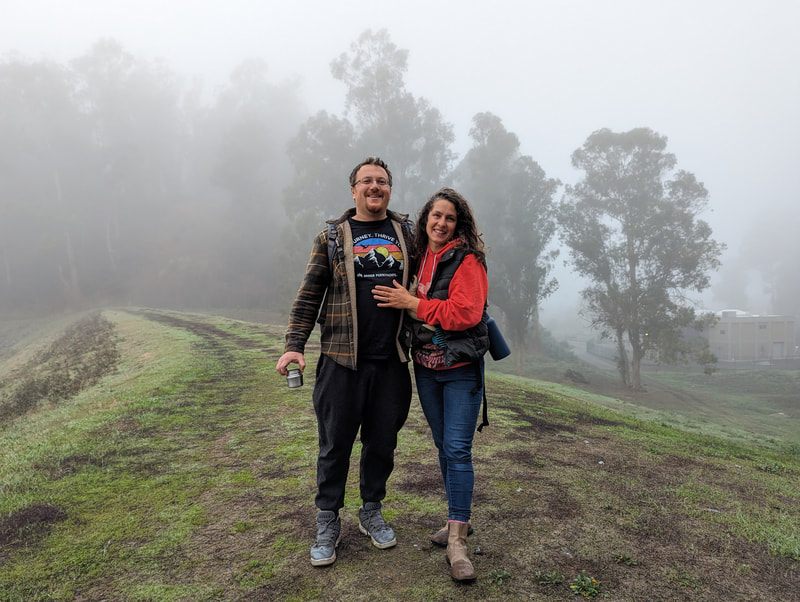
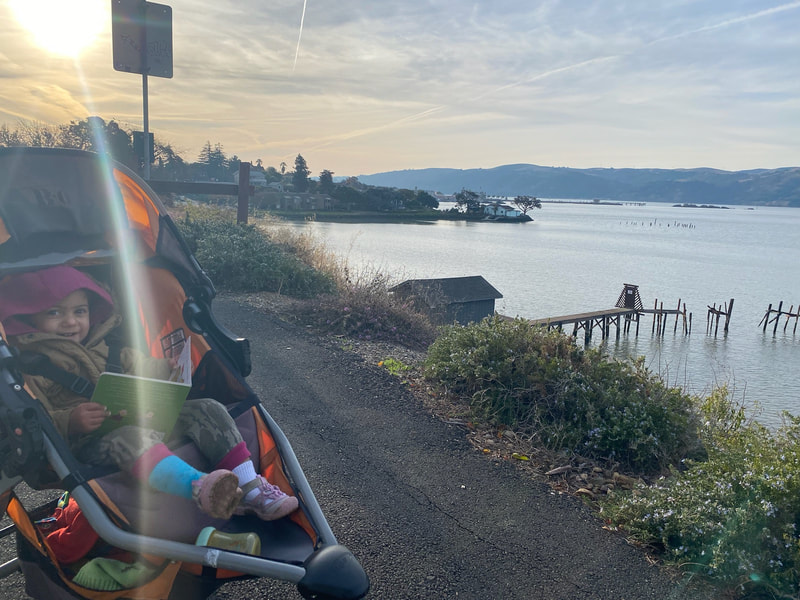
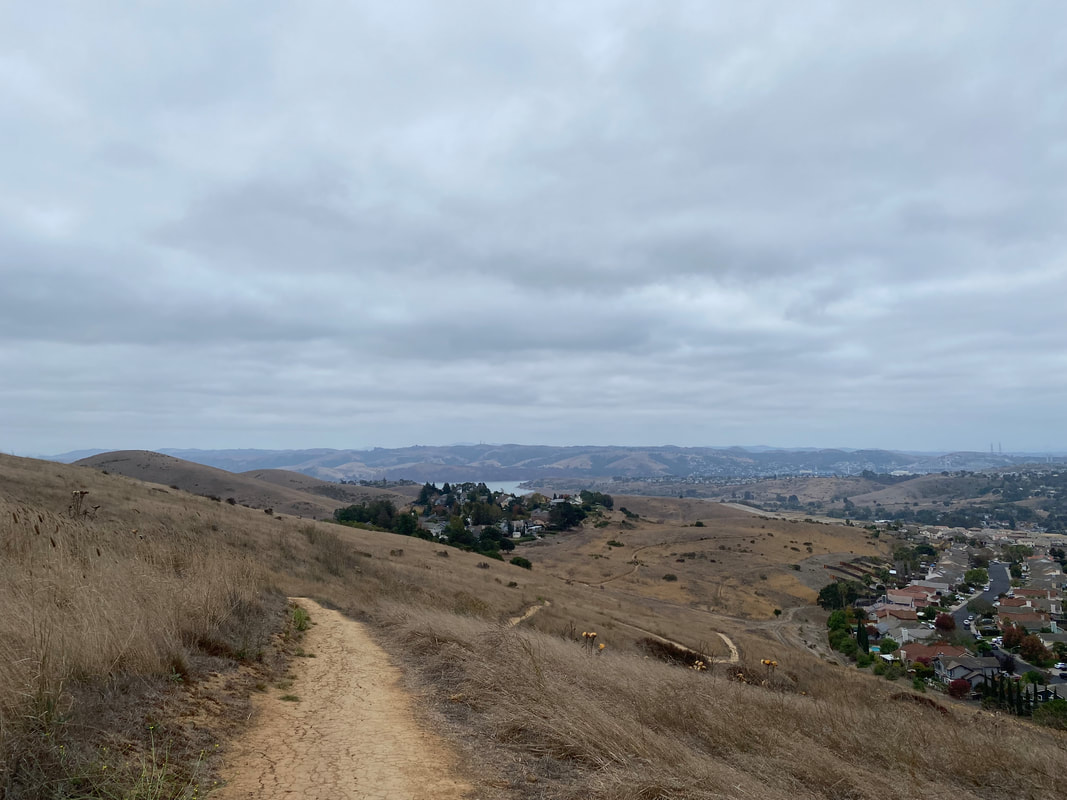
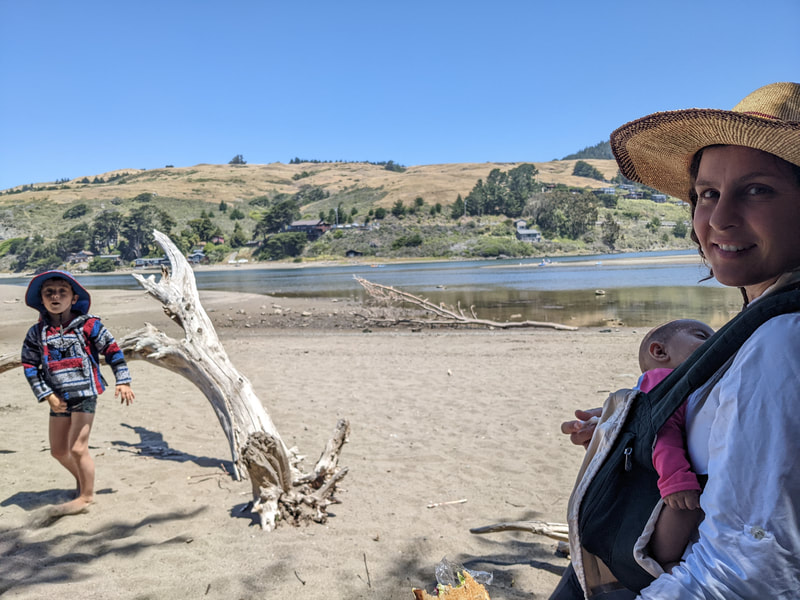
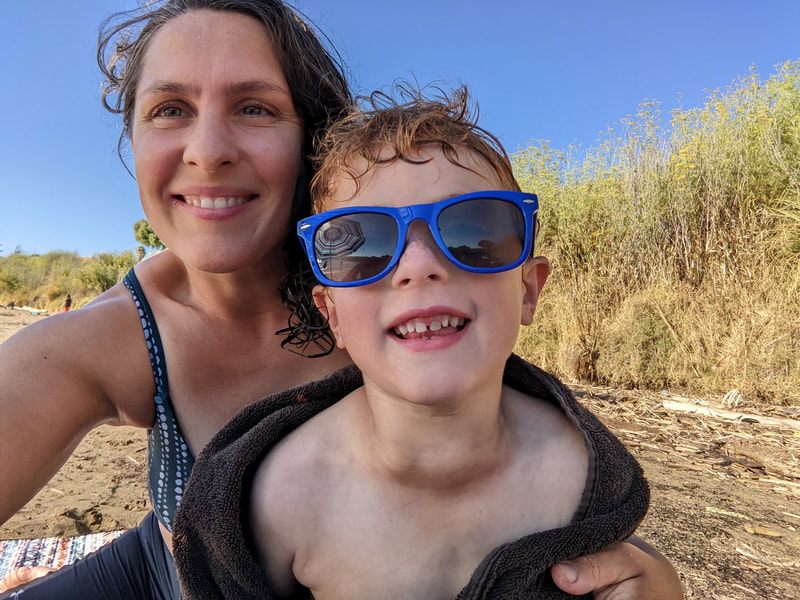

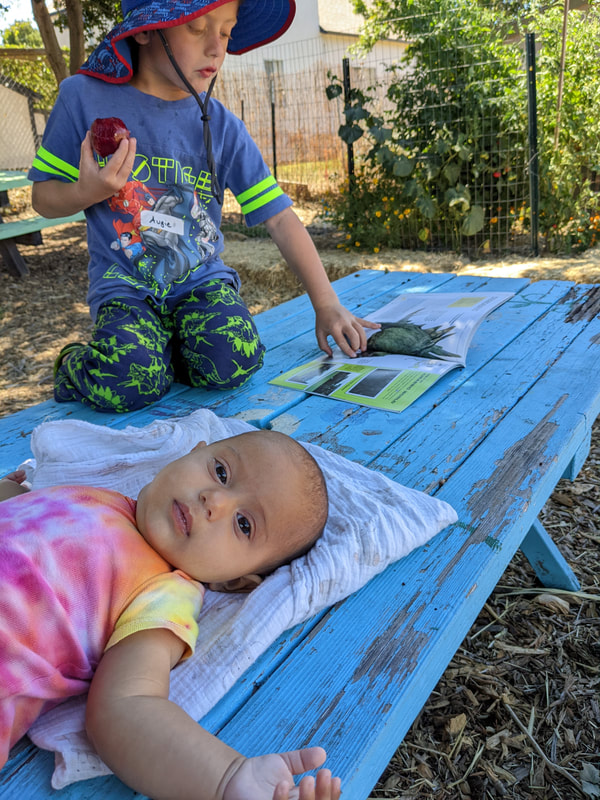

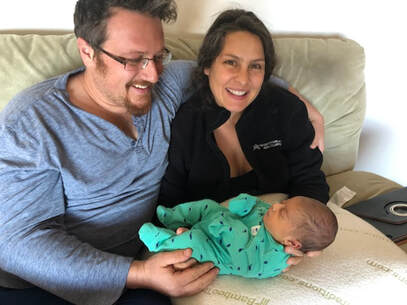
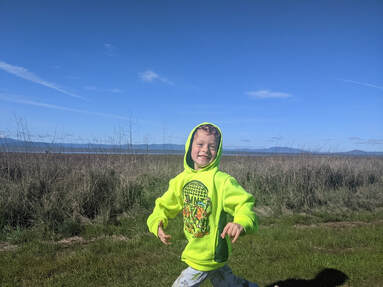
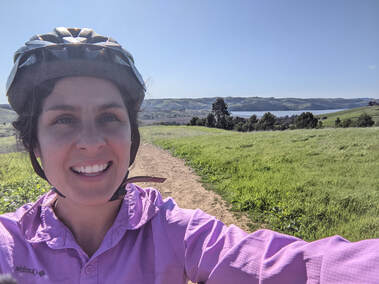


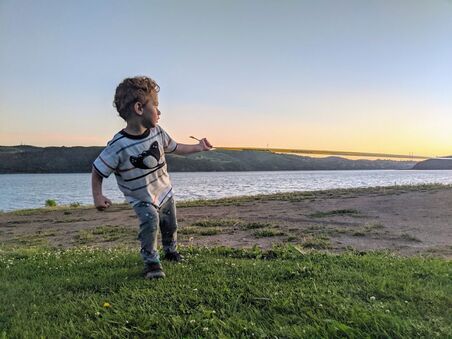
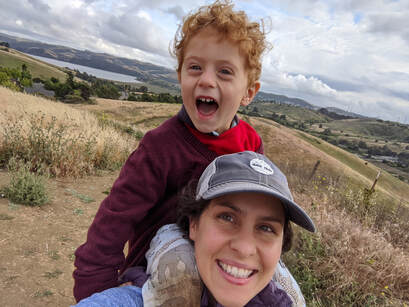
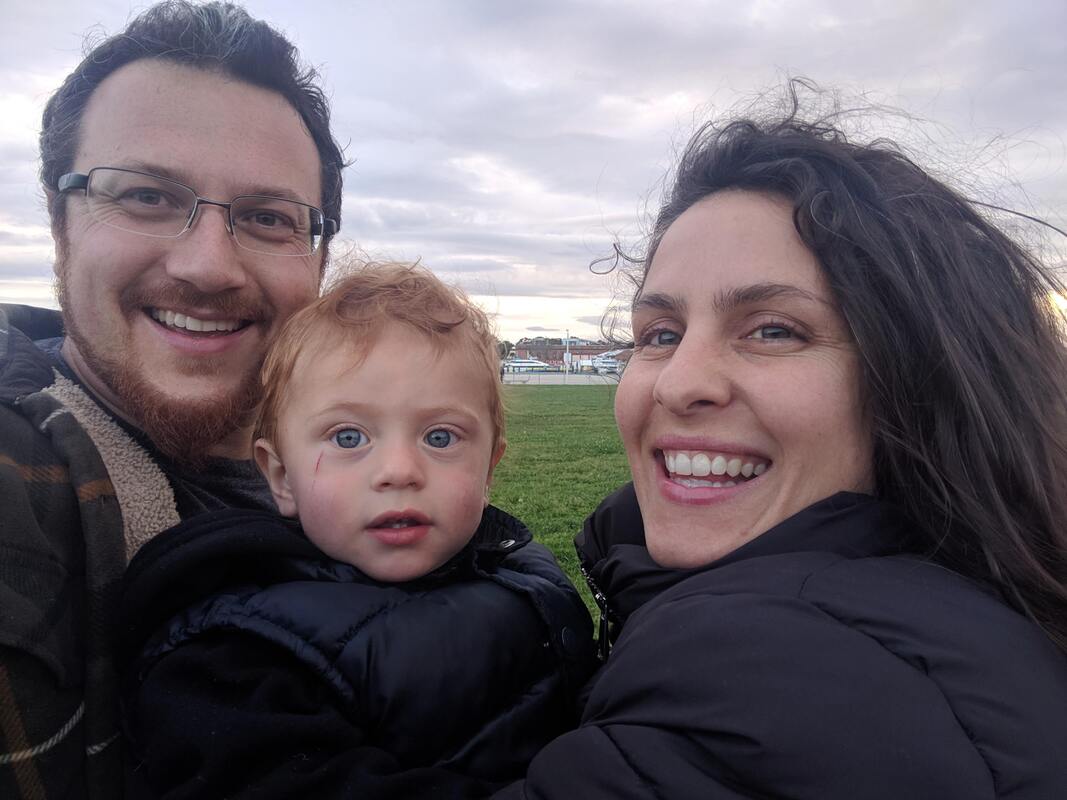
 RSS Feed
RSS Feed